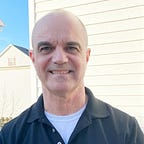Don’t Be So Busy Planning That You Forget To Live
We can do both. We just need balance.
It happens to all of us, we make a plan and then something or someone comes along and messes it up. We are disappointed, angry, and frustrated. But we can usually pick up the pieces and move on.
But not always.
Sometimes the setbacks we suffer are intense, long-lasting, and devastating. Research on the aftermath of natural disasters has found that certain conditions amplify the mental impact of a disaster. The emotional impact is worsened if the setback, disaster, or emergency was unexpected, involved threats to life or the loss of life, impacted people we care about, involved the loss of a job or important resources, or if we lacked social and emotional support when trying to respond and cope.
When bad things happen, our plans go out the window and we face stress, anxiety, and an uncertain future.
We can keep in mind this sobering thought.
The people who died this morning had plans for today. The people who will die tonight have plans for tomorrow.
We must remember that the future is not guaranteed. Personal disaster can happen in an instant. In the blink of an eye everything can change and our plans can be washed…
